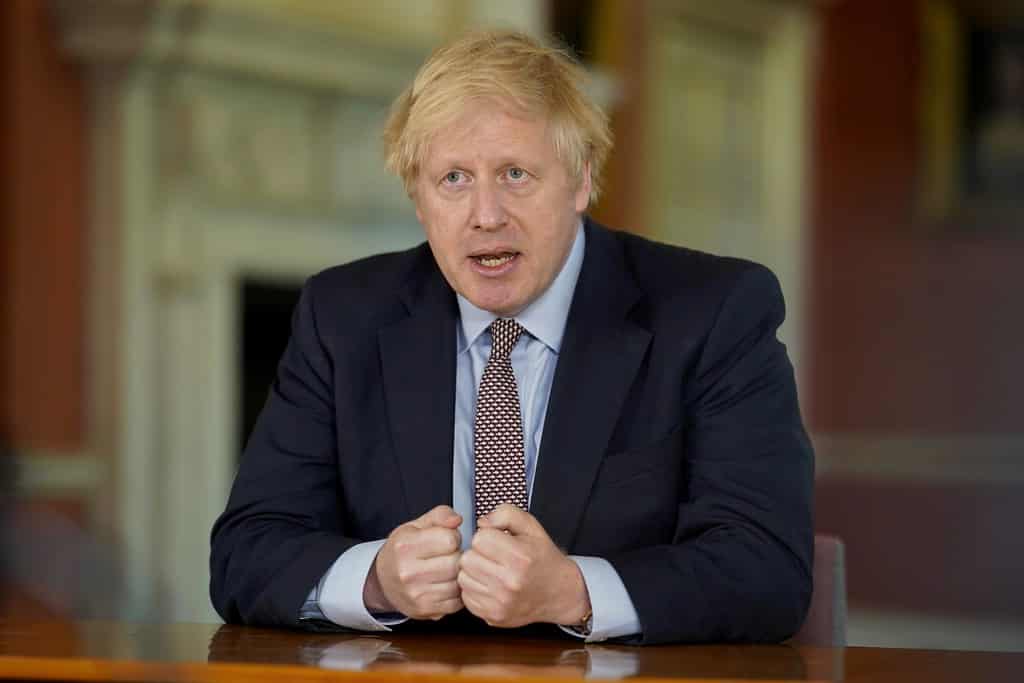[vc_row njt-role=”people-in-the-roles” njt-role-user-roles=”administrator,editor,author,armember”][vc_column][vc_column_text]
British Prime Minister Boris Johnson has been forced to resign by his own party. His replacement will have to redouble his efforts to avoid the recession and improve the difficult economic situation.
Boris Johnson announced last Thursday that he was resigning as leader of the Conservative Party and British Prime Minister, following the resignation of more than 50 government ministers and the announcement by many parliamentarians that they wanted him to leave.
Strained by a series of scandals and a loss of confidence in his integrity, the Prime Minister remained in office, a situation that his opponents, and many members of his own party, considered untenable.
A weakened economic and social situation
Recently, like most european countries, the U.K. has been facing high inflation, slowing business activity, rising interest rates and, as a result, strong fears of economic recession. With inflation near 10% and less support for purchasing power than its neighbors, the U.K. is in a complicated situation.
“The UK is perhaps the most worrying country in Europe today. Inflation is running rampant. Electricity prices rose by 54% in April and they could rise again by 40% in October” with the war in Ukraine and the rising cost of hydrocarbons, explains Bruno De Moura Fernandes, economist at Coface. According to him, “it is very possible that British GDP will decline for three or four quarters.”
“With the Brexit, trade barriers have increased with the European Union,” comments Felix Berte, economist at BNP Paribas. Indeed, according to a study by the UK in a Changing Europe think tank, the Brexit would have led to a 6% increase in food prices between December 2019 and September 2021.
Strikes are on the rise in England, such as the one that affected transport at the end of June, which was on a scale not seen since the 1990s. The social climate could worsen further because the British government has been less supportive of its citizens’ purchasing power than other countries in the euro zone.
For its part, the central bank of England is in a difficult position. “The Bank of England is faced with a trade-off: either it raises rates quickly to fight inflation, or it waits and hopes that rising prices will slow demand. For the moment, it is raising rates in small steps,” explains Felix Berte.
The cards will be in the hands of the future Prime Minister, who will have to face many challenges in order to maintain the helm. “Whatever the party decides to do next, it needs to do it quickly,” said the Daily Telegraph newspaper in its editorial. “The country will not understand or forgive a long leadership contest in the midst of an economic crisis and with the threat of wider war in Europe ever present.”
Read also > WESTERN STOCK MARKETS RECOVER AS RESTRICTIONS ARE LIFTED IN CHINA
Featured photo : © Andrew Parsons / 10 Downing Stre/ Crown Copyright [/vc_column_text][/vc_column][/vc_row][vc_row njt-role=”not-logged-in”][vc_column][vc_column_text]
British Prime Minister Boris Johnson has been forced to resign by his own party. His replacement will have to redouble his efforts to avoid the recession and improve the difficult economic situation.
Boris Johnson announced last Thursday that he was resigning as leader of the Conservative Party and British Prime Minister, following the resignation of more than 50 government ministers and the announcement by many parliamentarians that they wanted him to leave.
Strained by a series of scandals and a loss of confidence in his integrity, the Prime Minister remained in office, a situation that his opponents, and many members of his own party, considered untenable.
A weakened economic and social situation
Recently, like most european countries, the U.K. has been facing high inflation, slowing business activity, rising interest rates and, as a result, strong fears of economic recession. With inflation near 10% and less support for purchasing power than its neighbors, the U.K. is in a complicated situation.
[…][/vc_column_text][vc_cta h2=”This article is reserved for subscribers.” h2_font_container=”tag:h2|font_size:16|text_align:left” h2_use_theme_fonts=”yes” h4=”Subscribe now !” h4_font_container=”tag:h2|font_size:32|text_align:left|line_height:bas” h4_use_theme_fonts=”yes” txt_align=”center” color=”black” add_button=”right” btn_title=”I SUBSCRIBE !” btn_color=”danger” btn_size=”lg” btn_align=”center” use_custom_fonts_h2=”true” use_custom_fonts_h4=”true” btn_button_block=”true” btn_custom_onclick=”true” btn_link=”url:https%3A%2F%2Ftest2023.luxus-plus.com%2Fen%2Fsubscriptions-and-newsletter-special-offer-valid-until-september-30-2020-2-2%2F”]Get unlimited access to all articles and live a new reading experience, preview contents, exclusive newsletters…
Already have an account ? Please log in.
[/vc_cta][vc_column_text]Featured photo : © Andrew Parsons / 10 Downing Stre/ Crown Copyright[/vc_column_text][/vc_column][/vc_row][vc_row njt-role=”people-in-the-roles” njt-role-user-roles=”subscriber,customer”][vc_column][vc_column_text]
British Prime Minister Boris Johnson has been forced to resign by his own party. His replacement will have to redouble his efforts to avoid the recession and improve the difficult economic situation.
Boris Johnson announced last Thursday that he was resigning as leader of the Conservative Party and British Prime Minister, following the resignation of more than 50 government ministers and the announcement by many parliamentarians that they wanted him to leave.
Strained by a series of scandals and a loss of confidence in his integrity, the Prime Minister remained in office, a situation that his opponents, and many members of his own party, considered untenable.
A weakened economic and social situation
Recently, like most european countries, the U.K. has been facing high inflation, slowing business activity, rising interest rates and, as a result, strong fears of economic recession. With inflation near 10% and less support for purchasing power than its neighbors, the U.K. is in a complicated situation.
[…][/vc_column_text][vc_cta h2=”This article is reserved for subscribers.” h2_font_container=”tag:h2|font_size:16|text_align:left” h2_use_theme_fonts=”yes” h4=”Subscribe now !” h4_font_container=”tag:h2|font_size:32|text_align:left|line_height:bas” h4_use_theme_fonts=”yes” txt_align=”center” color=”black” add_button=”right” btn_title=”I SUBSCRIBE !” btn_color=”danger” btn_size=”lg” btn_align=”center” use_custom_fonts_h2=”true” use_custom_fonts_h4=”true” btn_button_block=”true” btn_custom_onclick=”true” btn_link=”url:https%3A%2F%2Ftest2023.luxus-plus.com%2Fen%2Fsubscriptions-and-newsletter-special-offer-valid-until-september-30-2020-2-2%2F”]Get unlimited access to all articles and live a new reading experience, preview contents, exclusive newsletters…
Already have an account ? Please log in.
[/vc_cta][vc_column_text]Featured photo : © Andrew Parsons / 10 Downing Stre/ Crown Copyright[/vc_column_text][/vc_column][/vc_row][vc_row njt-role=”people-in-the-roles” njt-role-user-roles=”subscriber,customer”][vc_column][vc_column_text]








